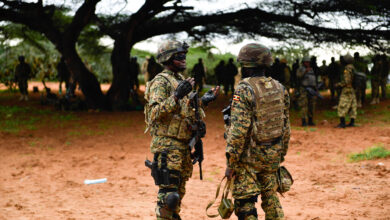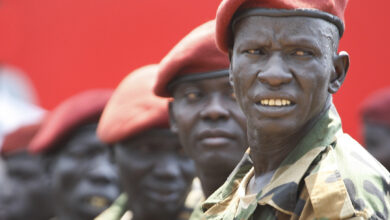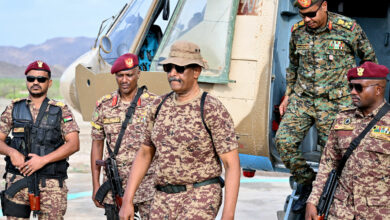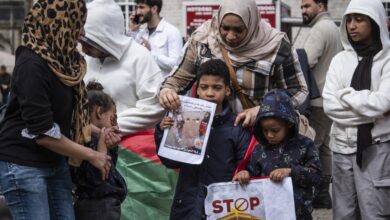South Sudan’s President Salva Kiir has issued a decree offering a blanket amnesty to rebels, including his bitter rival Riek Machar, state radio reported Thursday, August 9.
The announcement comes just days after the two men signed a power-sharing deal in the Sudanese capital Khartoum aimed at ending a nearly five-year civil war that has killed tens of thousands and uprooted millions.
“President Salva Kiir issued a presidential decree … pardoning Dr. Riek Machar and other groups that took up arms against the government since 2013. The decree comes into effect on the date 8 August 2018,” State Radio Juba said, reading the decree.
Kiir also reiterated a call for his forces to observe a ceasefire agreed in June by both the government and Machar’s rebels. That ceasefire agreement allows members of the African Union and the Intergovernmental Authority on Development (IGAD) – an East African regional grouping that has been pushing peace efforts – to deploy forces to supervise the ceasefire.
Lam Paul Gabriel, deputy military spokesperson for Machar’s Sudan People’s Liberation Movement-in-Opposition, said the amnesty would only be genuine if Kiir observes all its conditions.
“Machar can only come to Juba after the pre-interim period when the unified forces are deployed in Juba and other major towns in South Sudan,” Reuters reported him as saying.
South Sudan power-sharing deal
The power-sharing deal was signed on Sunday in the presence of Sudanese President Omar al-Bashir and his counterparts from Kenya, Uganda and Djibouti, along with foreign diplomats.
The agreement paves the way for a final peace deal and the formation of a transitional government that will hold power until elections are held. The deal allows Machar to return to South Sudan as the first of five vice-presidents, a role he occupied until shortly before the conflict erupted in December 2013 when Kiir accused him of plotting a coup.
The final peace accord must be signed under the auspices of the IGAD regional bloc, and will be followed by the formation of a transitional government that will hold power for three years until elections can be organized.
The deal lays out a plan for a 35-minister transitional government including 20 Kiir allies and nine backers of Machar, along with representatives of other rebel factions. The parliament will be comprised of 550 lawmakers, including 332 from Kiir’s group and 128 from Machar’s faction.
It remains unclear whether Machar’s rank and file will accept the power-sharing deal he has signed, and there are still rebel groups outside the deal, such as that of former army chief Paul Malong, who formed the South Sudan United Front rebel group in April.
Long-term Kiir-Machar rivalry
Kiir and Machar are former rebel leaders who rose to power during Sudan’s 1983-2005 civil war between north and south – a conflict in which the men also fought each other. After South Sudan gained independence in 2011, the power struggle between Kiir and Machar led to all out civil war in 2013 when the president accused his then-deputy of plotting a coup.
Initially pitting Kiir’s Dinka ethnic group against Machar’s Nuer, South Sudan’s conflict has expanded, drawing in a variety of ethnic groups and grievances.
Tens of thousands of people have been killed and millions more uprooted or pushed to the brink of starvation in a conflict characterised by mass rape and the killing of civilians. Aid workers and peacekeepers have frequently been targeted.
On Monday, United Nations Secretary-General Antonio Guterres on Monday welcomed the power-sharing deal and urged them to act quickly to reach a final agreement.
Guterres hailed the agreement as “an important step” on the path toward reviving a peace deal signed in 2015 that was supposed to end the war.
The U.N. chief urged all parties to “work in good faith and demonstrate their commitment to fully implement and to finalize the revitalized ARCSS as soon as possible,” he said in a statement.
The Agreement on the Resolution of the Conflict in South Sudan (ARCSS) was signed in 2015 to restore peace. It pushed the two men into government again in 2016, but, just months after Machar’s return, fighting erupted and he was forced to flee on foot with his supporters to the neighboring Democratic Republic of Congo.
Last month, the U.N. Security Council imposed an arms embargo to further South Sudan’s leaders to turn away from the battleground and seek a diplomatic solution. The Security Council also renewed sanctions on rebel leader Paul Malong and South Sudan’s Deputy Chief of General Staff for Logistics Malek Ruben Riak.
With reporting from AFP










